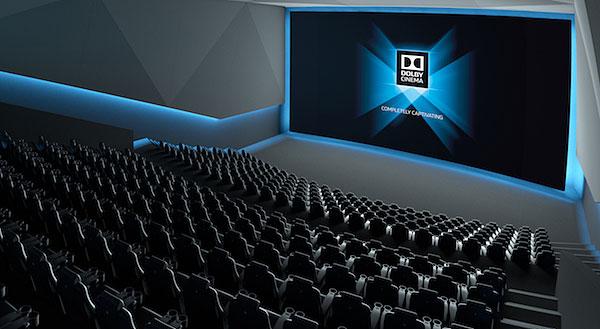Can Movie Theaters Survive the Shutdown?

That’s true throughout the world, driving film studios to delay release of their event movies until later in the year and making others available via streaming at prices at up to $20 a pop. That’s less than a trip to the theater even for two people, but high relative to what the market has become accustomed to from Amazon, Vudu, and other similar sites.
Behind the scenes, studios and their distributors are almost certainly scrambling to rearrange their schedules for the rest of the year, despite having no clue as to when the theaters might be back in business and customers willing to fill them. Films originally scheduled for release in the late spring or summer would, in normal times, be currently undergoing the final stages of post-production. But in the current situation many of the skilled tradespeople who do most such work aren’t available. Hollywood isn’t just about movie stars. Ever sat through the all the credits of your favorite blockbuster? Try it sometime.
Movies originally scheduled for next fall are likely even further behind. This could well mean that the usual, oh-so-serious, Oscar-bait releases won’t be out in time to make the year-end limit for Best Picture consideration. Instead, less “relevant” films, the ones now being delayed from their usual summer release and normally relegated to the Academy Award’s kiddie-table, might get a real shot at the crown.
Hollywood budgets will also take a beating, likely resulting in films over the next few years having smaller and/or less costly casts and crew. In the past that might have given us films like Pirate of the Caribbean, Planet of the Ape, Little Woman, and Knife Out.
Will movie theaters even survive after all this settles out? Some commentators suspect they won’t. Theaters now depend on tentpole blockbusters to cover losses from smaller films with less mass appeal. And they get most of their revenue from concessions, not from the films on their screens. More butts in the seats means more overpriced popcorn and soda gets sold. Fewer customers might have serious consequences not only for theaters but for the movie business itself. Can the studios still afford to generate big budget crowd-pleasers if the crowds are smaller or don’t show up at all? A steady diet of light dramas and second tier animation will not be a revenue substitute for the latest release from Marvel or Pixar.
This might also alter the video release paradigm, but it’s difficult to say just how. Will it accelerate the shrinking packaged media market that is, further slow sales of DVDs, Blu-rays, and Ultra HD Blu-rays? One thing’s certain: the loss of theatrical releases this spring could bring a dearth of new video titles, either packaged or streamed, in the coming months. One way to mitigate this could be re-release of classic titles on Blu-ray or UHD Blu-ray. Many such films were never released in one or both of those formats.
Just how much revenue that might bring to Hollywood is hard to guess, but I have the feeling that if the studios sense a market for such releases, with little else new to sell, they might jump at the opportunity. Every buck will count. Consumers may have less spare cash even after the virus abates and the country goes back to work, but in any environment titles such as the Lord of the Rings trilogy and the long-delayed Lawrence of Arabia on Ultra HD Blu-ray will sell.
For those of us with a home theater, either modest or jaw-dropping, the loss of movie theaters might produce little more than a shrug. But if you’re like most movie fans you still enjoy the theater experience, if only occasionally. For me, that involves a big film, a large screen, and good theater sound. But those benefits are only available in the best theaters. Theaters that never upgraded in good times will feel the pinch when they reopen. Some years ago, even before home theater was a thing, THX promised a consistent moviegoing experience. It didn’t deliver. I lived in Santa Fe at the time. Nearby Albuquerque had a couple of THX theaters, but they were clearly inferior to the THX theaters I was familiar with from frequent visits to Los Angeles.
IMAX followed THX with better long-term success. But for me Dolby Cinema now clearly offers the best moviegoing experience. The AMC complex near me installed a Dolby Cinema last April. I’ve been there at least 8 times in the year since, a half hour drive each way. I’d be bummed to see it closed permanently.
But I don’t think that will happen. Things might be a little different than before. Those marginal theaters might close, and I could see even the best theaters darkened on typically slow, midweek afternoons. But a night out at the movies (particularly for the young adult crowd) is still something many film fans look forward to on a Friday or Saturday night.





























































